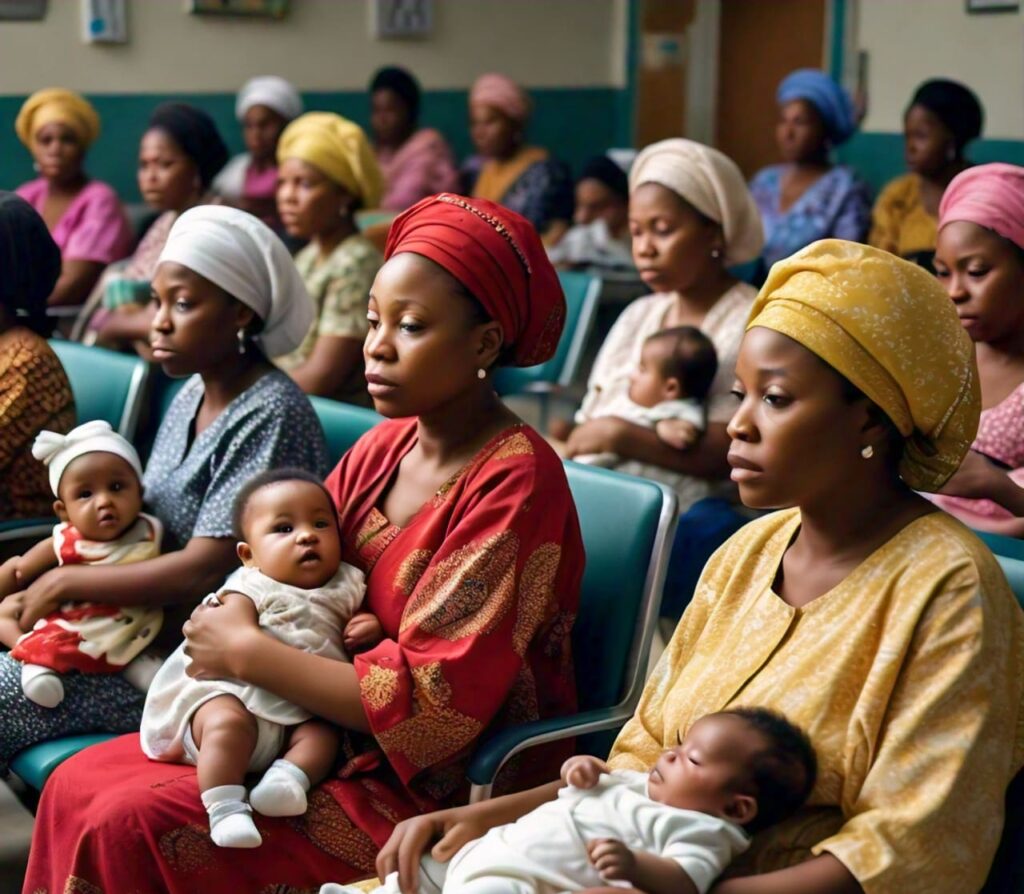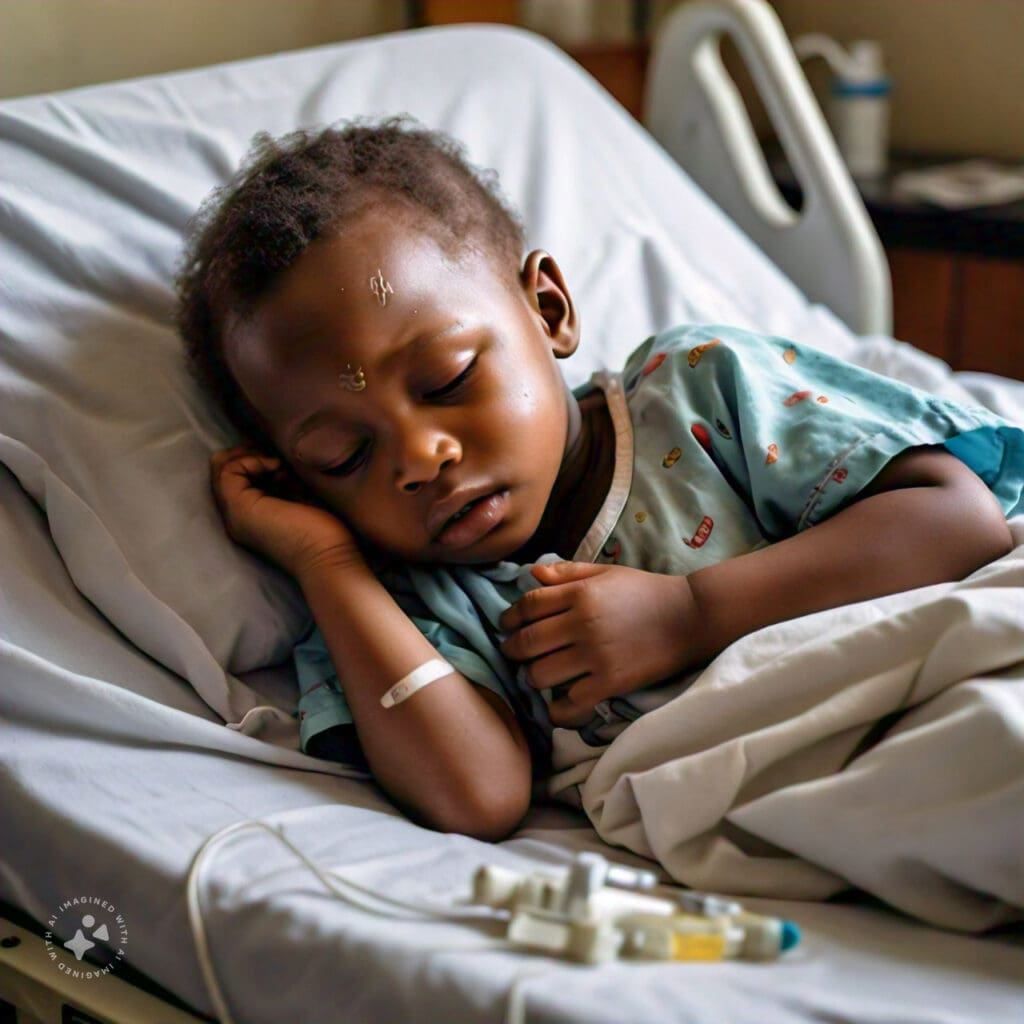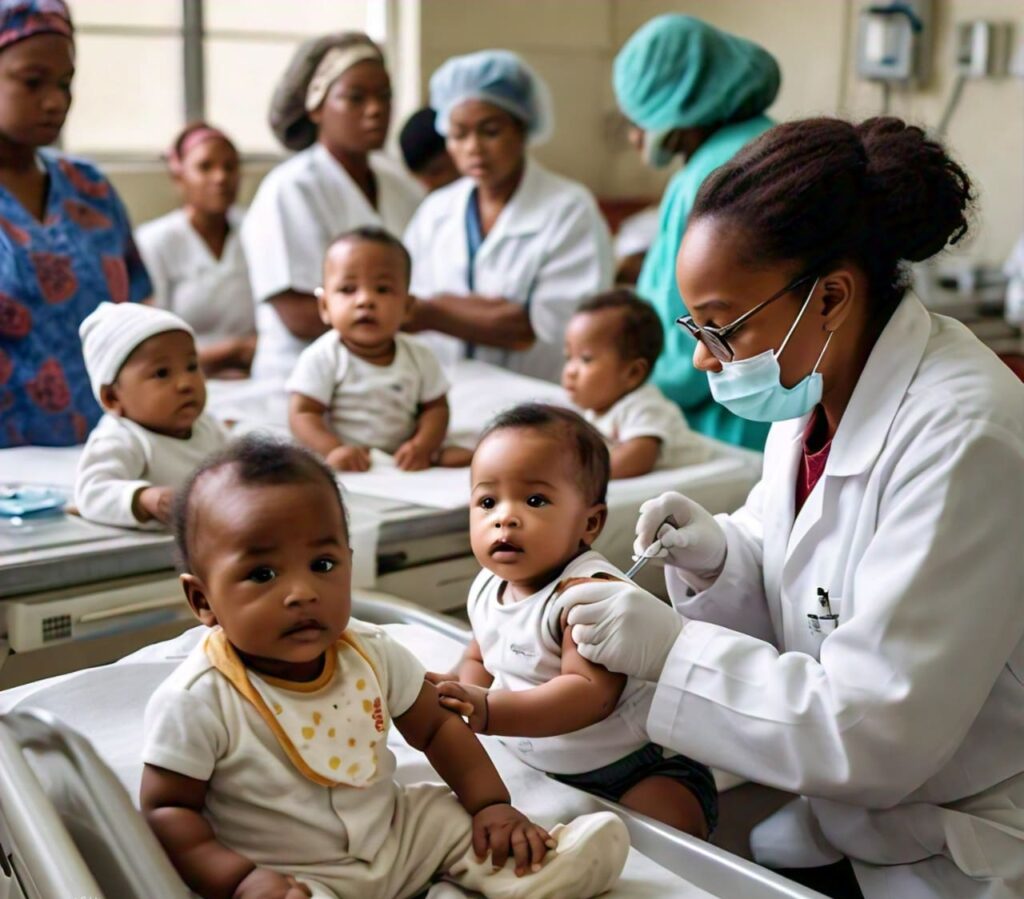
Child immunization is a crucial step in ensuring the health and well-being of children in Nigeria. It involves giving vaccines to children to protect them from various diseases.
This article will highlight the importance of child immunization, its positive impact on growth and development, the negative consequences of not vaccinating children, and the diseases they can contract without immunization.
Importance of Child Immunization
Immunization is one of the most effective ways to keep them healthy. Vaccines prepare the body to fight off serious infections, helping children build a strong immune system.
Immunization not only protects the vaccinated child but also helps prevent the spread of diseases in the community, especially to those who cannot be vaccinated due to medical conditions.
Immunization is very important for your child’s health. It helps to:
- Protect your child: Vaccines stop your child from getting serious diseases that can make them very sick or even die.
- Build strong immunity: It helps your child’s body fight off germs and stay healthy.
- Protect others: When many children are immunized, it helps to protect those who can’t be vaccinated, like babies and people with weak immune systems.
Immunization for Children in Nigeria: Timing and Protection
Here’s a simple guide to the immunization and their timing:
- At Birth:
- BCG (Bacillus Calmette-Guérin): Protects against tuberculosis (TB).
- Hepatitis B: Protects against hepatitis B virus.
- 6 Weeks:
- Pentavalent Vaccine: Combines vaccines for diphtheria, tetanus, pertussis (whooping cough), hepatitis B, and Haemophilus influenzae type b (Hib).
- Polio (OPV – Oral Polio Vaccine): Protects against polio.
- Rotavirus: Protects against severe diarrhea caused by rotavirus.
- Pneumococcal Conjugate Vaccine (PCV): Protects against pneumonia and other infections caused by pneumococcus bacteria.
- 10 Weeks:
- Pentavalent Vaccine: Second dose.
- Polio (OPV): Second dose.
- Rotavirus: Second dose.
- Pneumococcal Conjugate Vaccine (PCV): Second dose.
- 14 Weeks:
- Pentavalent Vaccine: Third dose.
- Polio (OPV): Third dose.
- Pneumococcal Conjugate Vaccine (PCV): Third dose.
- 6 Months:
- Measles: Protects against measles.
- Vitamin A Supplement: Helps boost the immune system.
- 12 Months:
- Measles: Second dose.
- Mumps and Rubella (MMR): Protects against mumps and rubella.
- 18 Months:
- Diphtheria, Tetanus, and Pertussis (DTP): Booster dose.
- Polio (OPV): Booster dose.
- Hepatitis B: Final dose.
- 5 Years:
- Diphtheria, Tetanus, and Pertussis (DTP): Booster dose.
- Polio (OPV): Booster dose.
These vaccines help protect children from serious illnesses and contribute to their overall health and development.
Positive Impact of Immunization on Growth and Development

Immunization not only keeps children safe but also helps them grow up strong and healthy.
- Healthy Start: Vaccinated children are less likely to suffer from serious illnesses, allowing them to have a healthy start in life.
- Improved Learning: Healthy children can attend school regularly, which improves their learning and social skills.
- Long-Term Health: Immunization protects children from diseases that can cause long-term health issues, ensuring they grow into healthy adults.
Additional Positive Impact of Immunization on Growth and Development
Here are additional positive impacts of immunization on children in Nigeria:
- Reduced Infant Mortality: Immunization significantly decreases the rate of infant deaths by protecting children from life-threatening diseases.
- Stronger Immune System: Vaccines help develop and strengthen a child’s immune system, making them more resilient to infections.
- Economic Benefits for Families: Immunized children are less likely to need frequent medical care, reducing healthcare costs and financial burdens on families.
- Community Health Protection: When a high percentage of children in a community are vaccinated, it provides herd immunity, protecting those who are too young or medically unable to be vaccinated.
- Lower Risk of Outbreaks: Widespread immunization helps prevent the spread of diseases, reducing the likelihood of outbreaks and epidemics.
- Better Quality of Life: Immunized children experience fewer interruptions in their daily activities, allowing them to enjoy a more active and fulfilling childhood.
- Social Development: By staying healthy, children can participate more fully in social and extracurricular activities, aiding their overall social development.
Negative Consequences of Not Immunizing

Without vaccines, kids are at higher risk for dangerous diseases like polio, measles, and whooping cough.
This can lead to severe health problems, long-term disabilities, and even death.
Skipping vaccinations puts children’s health at risk and can strain families and the healthcare system.
- Increased Risk of Disease: Unvaccinated children are at a higher risk of catching and spreading serious diseases.
- Complications and Disabilities: Many vaccine-preventable diseases can lead to severe complications, including lifelong disabilities.
- Economic Burden: Treating diseases can be costly, putting a financial strain on families and the healthcare system.
Additional Negative Consequences of Not Immunizing
Here are additional negative impacts of not immunizing children in Nigeria:
- Higher Mortality Rates: Unvaccinated children face a greater risk of dying from preventable diseases, increasing child mortality rates.
- Strain on Healthcare Resources: Outbreaks of preventable diseases can overwhelm healthcare facilities, leading to inadequate care for other patients.
- Missed Educational Opportunities: Frequent illness can cause children to miss school, affecting their learning and development.
- Social Isolation: Unvaccinated children may be excluded from social activities or schools to prevent disease spread, leading to isolation.
- Psychological Stress: Parents of unvaccinated children may experience stress and anxiety about their children’s health and well-being.
- Public Health Risks: Low vaccination rates can lead to outbreaks, putting the broader community at risk, including those who are medically vulnerable.
Diseases Preventable by Immunization
- Polio: A disease that can cause paralysis.
- Measles: A highly contagious disease that can lead to pneumonia, brain damage, or death.
- Hepatitis B: A serious liver infection that can lead to chronic disease or liver cancer.
- Whooping Cough (Pertussis): A respiratory disease that can be severe in infants and young children.
- Diphtheria: This can cause a sore throat, fever, and a thick gray coating in the back of the throat
- Tetanus: Causes painful muscle stiffness and lockjaw.
Additional Diseases Preventable by Immunization
- Tuberculosis (TB): A bacterial infection mainly affecting the lungs, but it can also harm other parts of the body. TB can cause serious illness and, if not treated, can be fatal.
- Mumps: A viral infection that causes swelling in the salivary glands. It can also lead to problems like meningitis, hearing loss, and infertility.
- Rotavirus: A virus that causes severe diarrhea and dehydration, which can be dangerous for young children if not treated quickly.
- Chickenpox (Varicella): A highly contagious virus that causes itchy rashes and fever. In severe cases, it can lead to complications like pneumonia or bacterial infections.
- Haemophilus influenzae type b (Hib): A bacterial infection that can cause serious illnesses such as meningitis, pneumonia, and epiglottitis, which can be deadly.
- Rubella (German Measles): A viral infection that leads to a rash and fever. If a pregnant woman gets rubella, it can cause severe birth defects.
Vaccinating children is essential to protect them from these and other serious diseases, helping to keep them healthy and safe.
Protecting Your Child’s Future
By making sure your child is fully immunized, you’re giving them the best start in life. You’re protecting them from serious illnesses and helping them grow into a healthy adult.
Remember, immunization is one of the best things you can do for your child’s health. Talk to a healthcare provider for more information and to create a vaccination schedule for your child.
Conclusion
Child immunization in Nigeria is essential for protecting our children and ensuring a healthier future for them. By immunizing our children, we safeguard their growth and development, reduce the risk of severe diseases, and contribute to a healthier community.
Parents and caregivers should ensure that their children receive all the recommended vaccines to keep them safe and healthy.




